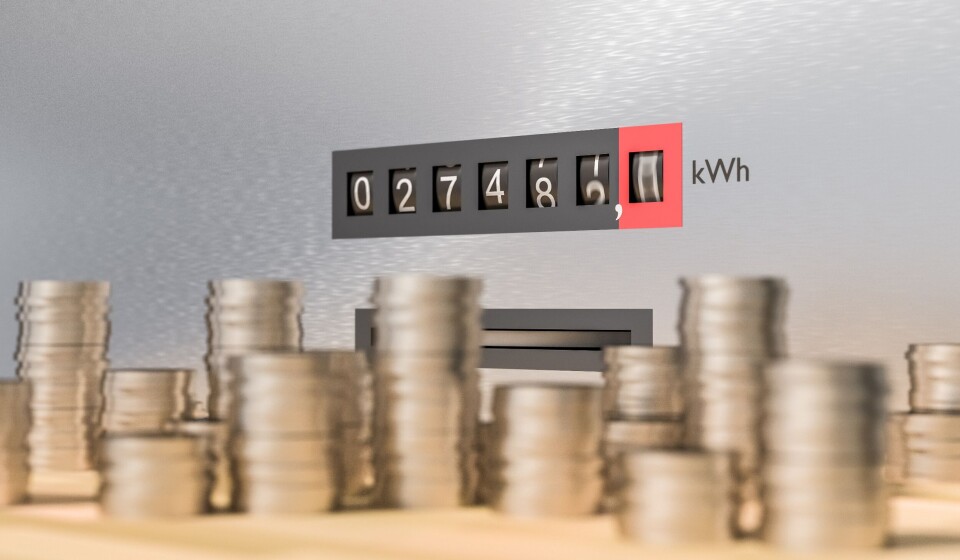-
Snake measuring up to five metres reported in Vendée
It was apparently run over by a car last week but is yet to be found
-
Mercosur trade deal explained: why French farmers are angry and will it pass?
A decisive vote is due on Friday December 19. Unions say if it passes there will be major disruption
-
Mutuelle fees set to increase in France next year: see by how much
New taxes on mutuelle companies denounced by insurance federation
Household bills soar by €64 a month in a year, new French study shows
Rising fuel costs are causing household bills to rise while purchasing power is also expected to drop next year with the impact varying depending on lifestyle and location

The average cost of household fuel bills in France has risen by €64 per month from December 2020 to October 2021, a new official study shows, as it also anticipates a drop in purchasing power in France for the first half of 2022.
A report published by national statistics bureau Institut national de la statistique et des études économiques (Insee) yesterday (December 14) found that city-dwellers were most affected by rising gas prices, while rural homes are most impacted by rising fuel costs.
It also predicted that overall purchasing power will drop by 0.5% in the next six months. This is in contrast to the 1.8% rise seen in 2021, and is due to rising costs of goods and difficulties in acquiring raw materials, Insee said.
It comes as gas prices have risen 40.9% and fuel prices by 21% between December 2020 and October 2021.
The study explains: “This increase partly reflects the particular situation in 2020: with health constraints in place, energy consumption volumes were well below their pre-crisis level.”
But while a third of the increase of €64 per month (€21) is explained by this general increase in energy consumption, two thirds (€43) is due to price inflation, including fuel (€20), gas (€15), and oil used for heating (€6).
In contrast, electricity price rises have been less severe, at just 2.6% since December 2020.
Location, location, location
The price rises, of course, affect households differently depending on consumption, fuel use, and location.
Residents of large cities have been hit hard by the inflation in gas prices (€15 more per month since November 2019), compared to those living in rural areas (€10).
In contrast, rural residents have seen their monthly fuel bill rise by €12 - compared to €5 for city dwellers. They also had to bear the increase in the price of fuel oil, which tends to be used more in single-family homes than in shared buildings.
Standard of living
Lifestyle and standard of living is also a factor.
The wealthier you are, the more energy you consume, and therefore the bigger increases in bill costs.
The lowest-income households saw a monthly increase in their gas bill that was three times lower than that of the richest – €9 compared to €26.
However, less well-off households are still likely to bear the brunt of higher bills than the wealthiest, given the much larger proportion they make up of their overall income.
Read more
-
Gas, electricity, petrol: See how your bills are rising in France
-
'We changed our French electricity supplier and saved €1,000 a year'
Purchasing power and recovery predictions
And while Insee predicts a drop in purchasing power for the first half of 2022, it also said that this 0.5% drop "does not preclude the evolution over the whole of 2022".
This means that the second half of the year may allow the first half to catch up, it said, especially if unemployment levels drop as predicted.
Insee said that it forecasts the creation of 150,000 additional jobs in the first six months of 2022, and 80,000 in the second half of the year. This will, it said, allow unemployment to fall to 7.6% of the active population by the middle of the year, compared with 7.8% at the end of 2021.
Rising salaries could also improve purchasing power, Insee says, as could the taxe d’habitation reforms, which are set to leave an extra €2.8billion in the pockets of the public.
And, despite the expected drop in the first half of 2022, “the evolution of purchasing power has not been so bad over the whole of [President Emmanuel Macron’s] five-year term”, said Mathieu Plane, economist and forecaster at the Observatoire français des conjonctures économiques (OFCE), to Le Monde.
Any changes to the economy that happen as a result of the 2022 presidential election could also play a significant role in outcomes, he said.
It comes as the least well-off households in France were sent cheques of €100 from the government to help with rising costs over winter.
Related articles
Tips to find cheap petrol as prices in France reach pre-pandemic level
Nearly 6 million households in France to get €100 energy bill bonus
Prime de Noël, chèque energie, €100 bonus: who in France will benefit?
























